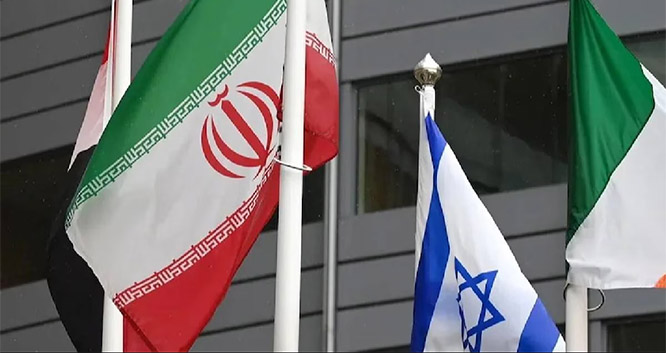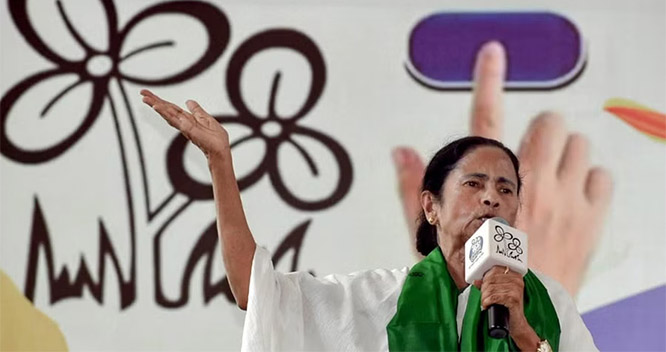The Karnataka government's decision to categorise the entire Muslim community as a backward caste for reservation purposes in the state has drawn criticism from the National Commission for Backward Classes (NCBC), which said such blanket categorisation undermines the principles of social justice.
According to the data submitted by the Karnataka Backward Classes Welfare Department, all castes and communities within the Muslim religion have been enlisted as socially and educationally backward classes under Category IIB in the State List of Backward Classes.
The NCBC, during a field visit last year, examined the state's reservation policy for OBCs in educational institutions and government jobs.
"All castes/communities of Muslim religion of Karnataka are being treated as socially and educationally backward classes of citizens and listed as Muslim Caste separately under Category IIB in the State List of Backward Classes for providing them reservation in admission into educational institutions and in appointments to posts and vacancies in the services of the State for the purpose of Articles 15(4) and 16(4) of the Constitution of India," the NCBC said in a statement on Monday night.
This categorisation has led to the provision of reservation benefits for 17 socially and educationally backward castes under Category I and 19 castes under Category II-A, respectively.
The NCBC said the blanket categorisation of Muslims as a backward caste undermines the principles of social justice, particularly for the marginalised Muslim castes and communities identified as socially and educationally backward.
However, the NCBC emphasised that while there are indeed underprivileged and historically marginalised sections within the Muslim community, treating the entire religion as backward overlooks the diversity and complexities within Muslim society.
"The religion-based reservation affects and works against ethics of social justice for categorically downtrodden Muslim castes/communities and identified socially and educationally backward Muslim castes/communities under Category-I (17 Muslim castes) and Category II-A (19 Muslim castes) of State List of Backward Classes. Hence, socially and educationally backward castes/communities cannot be treated at par with an entire religion," the NCBC stated.
The NCBC also voiced concern over the impact of such reservations on the overall framework of social justice, particularly in the context of local body polls.
While Karnataka provides 32 per cent reservation to backward classes in local body elections, including Muslims, the Commission stressed the need for a nuanced approach that accounts for the diversity within these communities.
According to the 2011 Census, Muslims constitute 12.92 per cent of the population in Karnataka.









Comments
Hahahah... What a joke!!!
What these RSS Terrorists contributed for India? They supported British. If you search in history Muslims taught them everything. Even they were not knowing how to bath, how to wear clothes, how to cook, how to build buildings. All the food recipe they learnt from Muslims. These aryans run away from Iran and now looting our India. All the Buildings and culture they are using were built by Muslims. What did they build??? Toilets????
AS PER WIKIPEDIA,
The Mughal Empire (Urdu: مغلیہ سلطنت, translit. Mughliyah Salṭanat)[7] or Mogul Empire,[8] self-designated as Gurkani (Persian: گورکانیان, Gūrkāniyān, meaning "son-in-law"),[9] was an empire in the Indian subcontinent, founded in 1526. It was established and ruled by a Muslim dynasty with Turco-Mongol Chagatai roots from Central Asia,[10][11][12] but with significant Indian Rajput and Persian ancestry through marriage alliances;[13][14] only the first two Mughal emperors were fully Central Asian, while successive emperors were of predominantly Rajput and Persian ancestry.[15] The dynasty was Indo-Persian in culture,[16] combining Persianateculture[8][17] with local Indian cultural influences[16] visible in its traits and customs.[18]
The Mughal Empire at its peak extended over nearly all of the Indian subcontinent[5] and large parts of Afghanistan. It was the second largest empire to have existed in the Indian subcontinent, spanning four million square kilometres at its zenith,[4] after only the Maurya Empire, which spanned five million square kilometres. The Mughal Empire began a period of proto-industrialization,[19]and Mughal India became the world's largest economic power, with 24.4% of world GDP,[20] and the world leader in manufacturing,[21] producing 25% of global industrial output up until the 18th century.[22] The Mughal Empire is considered "India's last golden age"[23] and one of the three Islamic Gunpowder Empires (along with the Ottoman Empire and Safavid Persia).[24]
The beginning of the empire is conventionally dated to the victory by its founder Babur over Ibrahim Lodi, the last ruler of the Delhi Sultanate, in the First Battle of Panipat (1526). The Mughal emperors had roots in the Turco-Mongol Timurid dynasty of Central Asia, claiming direct descent from both Genghis Khan (founder of the Mongol Empire, through his son Chagatai Khan) and Timur (Turco-Mongol conqueror who founded the Timurid Empire). During the reign of Humayun, the successor of Babur, the empire was briefly interrupted by the Sur Empire. The "classic period" of the Mughal Empire started in 1556 with the ascension of Akbar the Great to the throne. Under the rule of Akbar and his son Jahangir, the region enjoyed economic progress as well as religious harmony, and the monarchs were interested in local religious and cultural traditions. Akbar was a successful warrior who also forged alliances with several Hindu Rajput kingdoms. Some Rajput kingdoms continued to pose a significant threat to the Mughal dominance of northwestern India, but most of them were subdued by Akbar. All Mughal emperors were Muslims; Akbar, however, propounded a syncretic religion in the latter part of his life called Dīn-i Ilāhī, as recorded in historical books like Ain-i-Akbari and Dabistān-i Mazāhib.[25]
The Mughal Empire did not try to intervene in the local societies during most of its existence, but rather balanced and pacified them through new administrative practices[26][27] and diverse and inclusive ruling elites,[28] leading to more systematic, centralised, and uniform rule.[29] Traditional and newly coherent social groups in northern and western India, such as the Marathas, the Rajputs, the Pashtuns, the Hindu Jats and the Sikhs, gained military and governing ambitions during Mughal rule, which, through collaboration or adversity, gave them both recognition and military experience.[30][31][32][33]
The reign of Shah Jahan, the fifth emperor, between 1628 and 1658 was the golden age of Mughal architecture. He erected several large monuments, the best known of which is the Taj Mahal at Agra, as well as the Moti Masjid, Agra, the Red Fort, the Jama Masjid, Delhi, and the Lahore Fort. The Mughal Empire reached the zenith of its territorial expanse during the reign of Aurangzeb and also started its terminal decline in his reign due to Maratha military resurgence under Shivaji Bhosale. During his lifetime, victories in the south expanded the Mughal Empire to its greatest extent, ruling over more than 150 million subjects, nearly one quarter of the world's population at the time, with a GDP of over $90 billion.[34][35]
By the mid-18th century, the Marathas had routed Mughal armies and won over several Mughal provinces from the Punjab to Bengal.[36] Internal dissatisfaction arose due to the weakness of the empire's administrative and economic systems, leading to its break-up and declarations of independence of its former provinces by the Nawab of Bengal, the Nawab of Awadh, the Nizam of Hyderabad and other small states. In 1739, the Mughals were crushingly defeated in the Battle of Karnal by the forces of Nader Shah, the founder of the Afsharid dynasty in Persia, and Delhi was sacked and looted, drastically accelerating their decline. During the following century Mughal power had become severely limited, and the last emperor, Bahadur Shah II, had authority over only the city of Shahjahanabad. He issued a firman supporting the Indian Rebellion of 1857 and following the defeat was therefore tried by the British East India Company for treason, imprisoned and exiled to Rangoon.[37] The last remnants of the empire were formally taken over by the British, and the Government of India Act 1858 let the British Crown formally assume direct control of India in the form of the new British Raj.
Aryan cowboys who invaded India, enslved the original inhabitants destroying their culture, imposed Vedic divisive foreign inhuman cast system. India is still suffering from their terror mindset. They are the people who supported the British and responsible for death of millions of Indian freedom fighters. These traitors who licked the British boots, now lecuring us about patriotism. When Mughals came to this land, there was no India, they built India and contributed richly to its history. If these anti-human gang cant digest the truth, let them NOT use any of the Mughal or Muslims contribution and jump into Sarayu or Ganga enmasse.
If Owais is committing intolerance, Oh Blind, deaf, dumb BJP chelas, puffets, what the hell is happening specially in UP, is it tolerance? Killing in the name of gow rakshaks, killing small children, is it tolerance?
Add new comment